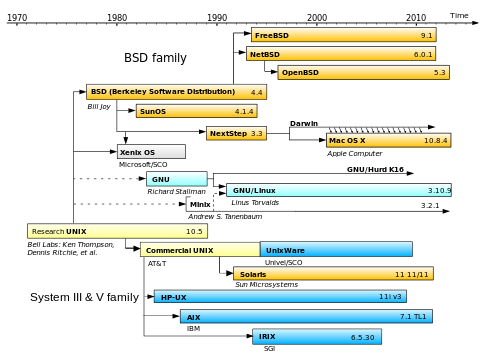

IT HAS long been recognised that cooperation combined with some competition leads to faster development and elimination of weaker concepts/implementations. We see a lot of this in the aviation and automobile industries. Many planes and cars use components from the same suppliers, but they still integrate uniquely in order to compete. Their improvements and integration work set them apart. The Linux Foundation, a unifying force in the world of Linux (kernel) development, says that "Competition Among Open Source Projects Delivers Better Technology Faster" [1]. Remember there even within Linux (and UNIX) there is a lot of competition, e.g. between file systems. There are pros and cons to each candidate and weaker ones cease to be developed.
"It is disheartening to see a lot of anger directed at those who conceptualise and then implement their own alternatives which they deem technically better."GVFS, which causes me much trouble at work, has a new release available for testing [2] and the same goes for GNOME Notes [3]. Cinnamon [4] and Wayland [5] help show that Shell and X are no longer the only game in GNOME town, demonstrating diversity in other layers of the stack too (GNOME does not necessarily run on GNU/Linux, either). GNOME is probably the most widely used Free/livre desktop environment, but over time it becomes easy to see that it branches off in many directions.
When it comes to KDE, which has a lot of power [6] and is actively developed by a very large group [7,8], the same is true. KDE can run on almost any operating system, with varying degrees of compatibility and integration. It's not just for desktops, either. That's why KDE was pretty much renamed/rebranded a "Software Compilation" a few years ago. My wife uses KDE because KWin makes it easier to use and it is more visually pleasing. But it's not for everyone.
Let's not forget others players like Xfce [9] (usually considered third in popularity) and of course the plethora of tools which make the command line so powerful [10,11,12,13]. On servers where performance comes first, command-line tools are a must.
When the "Free Desktop" expands to other form factors, supports more desktop/interface environments, initialisation systems, file systems, graphical servers etc. we should expect it to evolve faster, not more slowly. The development community grows when diversity increases. It is disheartening to see a lot of anger directed at those who conceptualise and then implement their own alternatives which they deem technically better. It's not the spirit of GNU to just slag off those who come up with new solutions, seeking to replace -- based on merit -- what's currently popular among users. It is okay to criticise those who try to leverage software patents to ban or tax their competitors (like Novell did with Microsoft), but to berate companies for doing GNU/Linux their own way (under copyleft) is worse than a waste of time; it's very counter-productive and it distracts from the real threats. ⬆
Related/contextual items from the news:
Today we’re pleased to announce that The Linux Foundation will host the Open Virtualization Alliance (OVA), the organization dedicated to education and advocacy for KVM. KVM is growing in popularity among businesses and open source communities like OpenStack with a 50 percent increase in deployments this year, according to IDC. We will work with OVA to extend education and advocacy that supports and helps advance the important work of this developer community.
The first development version towards the GVFS 1.20 application for the GNOME 3.12 desktop environment was announced a few days ago, introducing various fixes and improvements.
The first development release towards GNOME Notes 3.12, a nice and simple application designed to create, view, and edit notes on the GNOME 3.12 desktop environment, has been announced on October 27, 2013.
The Cinnamon Desktop project recently released version 2, a major overhaul of the desktop environment that's best known as the default option for Linux Mint's flagship release.
With the Fedora 20 beta coming up I decided to see where the latest Fedora 20 packages are now at for their support of Wayland and the GNOME Shell Wayland session. In particular, looking at whether the session is still buggy and how the XWayland performance is for Linux gaming.
I just read about the Whisker Menu for Xfce at OMG! Ubuntu and installed it on my system from the Fedora repositories.
While I’m happy with my panel on the left and the traditional Xfce Application Finder, I thought the Whisker Menu would be worth a try.
Laptops often have special keystroke combinations for certain functions or commands
The term lightweight is a label attached to computer software which is relatively simpler or faster than its counterparts. Feature bloat is endemic in software especially commercial software. Often, the easiest way to persuade users to upgrade to the latest version is to add new spangly features. This happens with open source software (to a lesser degree), and open source music software is not immune to feature bloat. Music players can often seem to be designed for everything except actually listening to music with tons of bloat that you do not actually need.